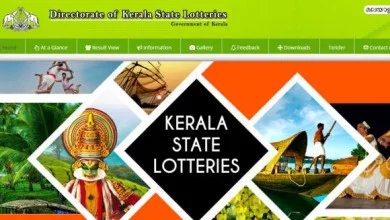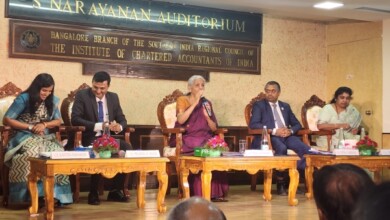Jal Jeevan Mission: Andaman & Nicobar Islands presents their Annual Action Plan; Focuses on ‘service delivery’, which is the essence of the Mission

Union Territory of Andaman & Nicobar Islands presented their Jal Jeevan Mission Annual Action Plan(2021-22) via video conferencing chartingthe plan of action for the financial year 2021-22.On World Water Day i.e. 22 March, 2021, UT of Andaman and Nicobar Islands was declared to have achieved 100 percent coverage of rural households with tap water connection and with this, the Andaman and Nicobar Islands became the third State/UT in the country to achieve 100% coverage of rural households with tap water supply after Goa and Telangana.The UT has 62 thousand rural householdsin 266 villages located in 9 blocks of three districts. Further, UT has also provided piped water supply to all the 368 schools, 558 Anganwadi centres and 292 public institution centres.
Announced by the Prime Minister on August 2019,the flagship programme Jal Jeevan Mission is under implementation in partnership with States to provide tap water connection to every ruralhousehold in the country by 2024. Since its announcement, Union and State Governments/ UT Administrations are working in tandem, to ensure ‘Har Ghar Jal’. At the time of start of JJM, about 3.23 Crore rural households (17%) were havingtap water supply, and since then in last19 months, despite CoVid-19 pandemic, more than 4.17 Crore rural households have been provided with new tap water connections. As aresult, more than 7.40 Crore (38.6%) rural households in the country are getting assured andpotable tap water in their homes.
Since the 100% rural households in the UT of A&N Islands have been provided with tap connections, it’s important to ensure that every rural home to get tap connection on regular and long-term basis without any disruption. This means, the focus of the UT administration is now on ‘service delivery’, which is the essence of Jal Jeevan Mission.In the Annual Action Plan (2021-22), the UT plans to focus on the sustainability of its completed schemes in 266 villages. Also, the focus will be on strengthening its Water Quality Monitoring and Surveillance (WQMS), IoT based sensor for measurement and monitoring of water supply schemes, grey water management and most importantly IEC activities to make people aware about various aspects of water management like water conservation, judicious use of water, waste water treatment and re-use, etc.The UT was urged to emphasize on grey water management through soak pits and reuse water for agriculture, forestry, horticulturepurposes.
Under JJM, priority is being given on water quality surveillance through active participation of frontline functionaries as well as involving the local community. 5 persons preferably women are trained in every village to use the Field Test Kits (FTK) to test the quality of water. Every source needs to be tested once every year for physical and chemical parameters and twice for bacteriological contamination. Public Health Engineering Department/ Rural Water Supply department of States is ensuring the supply of safe drinking water to rural homes and monitoring water quality on regular basis by testing in the laboratories. The UT has set up 1 UT level, 2 District level, and 7 Sub-Division level laboratories. Further, all MukhyaSevika, Anganwadi workers and 5 Women in each Panchayatwere trained in FTK testing. Also, 75 plumbers are trained under Pradhan Mantri Kaushal Vikas Yojna (PMKVY).
Under JJM, efforts are made to dovetail all available resources by the convergence of different programmes viz. MGNREGS, SBM, 15th Finance Commission Grants to PRIs, CAMPA funds, Local Area Development Funds, etc. The committee suggested that the UT should utilize its convergence fund for grey water management and water harvesting.
Andaman & Nicobar Islands administration is striving to transform Jal Jeevan Mission into a people’s movement and to achieve this objective, in the year 2020-2021 the UT organised street plays/ nukkadnatak at 14 places in South-Andaman and North & Middle Andaman. The UT administration also organized poster & video-making competitions, and the installation of hoardings & banners to sensitize the masses and encourage public participation. Around 1,000 booklets for children on water conservation and awareness in both Hindi & English were printed and distributed to instil awareness amongst school going kids. In 2021-22, the administration is planning similar IEC activities on a much larger scale, to make the people more aware.
Under the mission, in 2021-22, in addition to Rs 50,011 Crore budgetary allocation for JJM, there is also Rs 26,940 Crore assured fund available under the 15th Finance Commission tied-grant to RLB/ PRIs for water & sanitation, matching State share and externally aided as well as State-funded projects. Thus, in 2021-22, more than Rs. 1 lakh Crore is planned to be invested in the country on ensuring tap water supply to rural homes. An investment of this magnitude will be highly beneficial in boosting the rural economy, providing employment to youth and removing the drudgery of women and girls, proving to be a boon for rural India.




